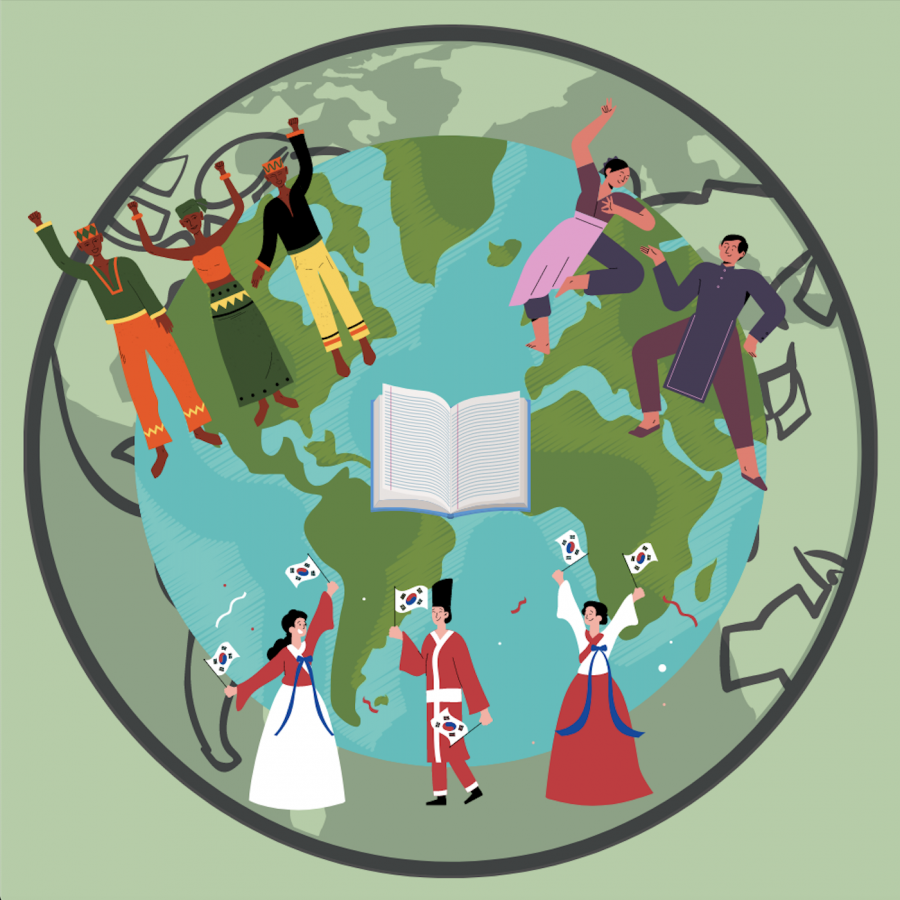There’s a saying, “Before you judge a man, walk a mile in his shoes.” This quote is very popular and has been repeated in speeches, classrooms, movies and even songs. But the true idiom comes from a Mary T. Lathrop poem that states, “Just walk a mile in his moccasins / Before you abuse, criticize, and accuse.”
I find this translation even more powerful because it shows the true importance of understanding others’ lives.
In a world divided by hate, there is no better time to start learning the history of others which is why having more ethnic study courses is a good place to start.
Growing up in America, we learn one history from a specific point of view: We learn how Christoper Columbus “discovered” America and helped the Native Americans who enjoyed feasting on Thanksgiving. We learn about our freedom from the British and how we fought the civil war to “free slaves.”
However, what the history books fail to mention is life before the colonizers. They don’t teach us about how smart and intuitive the Native Americans were or about the civilizations in Africa before those Africans were stolen and taken to America.
All we learn is the white history.
Ethnic studies teaches us all these forgotten histories. They teach us beautiful, painful and impactful stories of other cultures and countries that our nation chose to omit.
In 2020, Governor Gavin Newson signed a bill that requires all California State University students who enter as freshmen in the 2021-2022 school year to take an ethnic studies course focused on one of four ethnic groups in order to graduate. This bill was proposed by Secretary of State, Dr. Shirley Weber, who is a former San Diego State professor and a huge advocate for ethnic studies.
This requirement serves as a big step in the right direction because ethnic studies classes are necessary to not only learn your own history, but the history of those around you.
As a Black woman in America, I’ve learned more in my three years of Africana Studies classes about Black history than from my 12 years of education. These are things that should be taught to people of all ages and not just those in higher education.
By learning about the history of others, we can begin to understand why they think, act and speak in certain ways.
Ethnic studies allows people to develop empathy and compassion for situations they might not understand otherwise. It opens the door for more conversations and more progress because if you do not know the past, you cannot fix the future.
Many people discredit those who pursue a path in ethnic studies, mocking that they won’t find a job after college. What they don’t realize is that these individuals are the movers and shakers of this generation. These people are learning the history and insights of cultures that so many don’t know. They are informing themselves so they can do better and, thus, make a change by being advocates.
As a generation we are becoming more outspoken and willing to stand with our peers. The turnout for the Black Lives Matter marches last fall is proof that with more understanding and hearing others perspectives, we can make a difference. Even if our passion for activism is dismissed by the older generations and characterizes us as being “too soft” or “too emotional,” we should push forward because if we don’t, who will?
Ethnic studies helps to fuel change in the minds of this generation, and I believe the world would be a worse place without it.
No matter what your major is, start taking ethnic studies classes to learn more about yourself and others.
Sierra Stallworth is a junior studying journalism.







